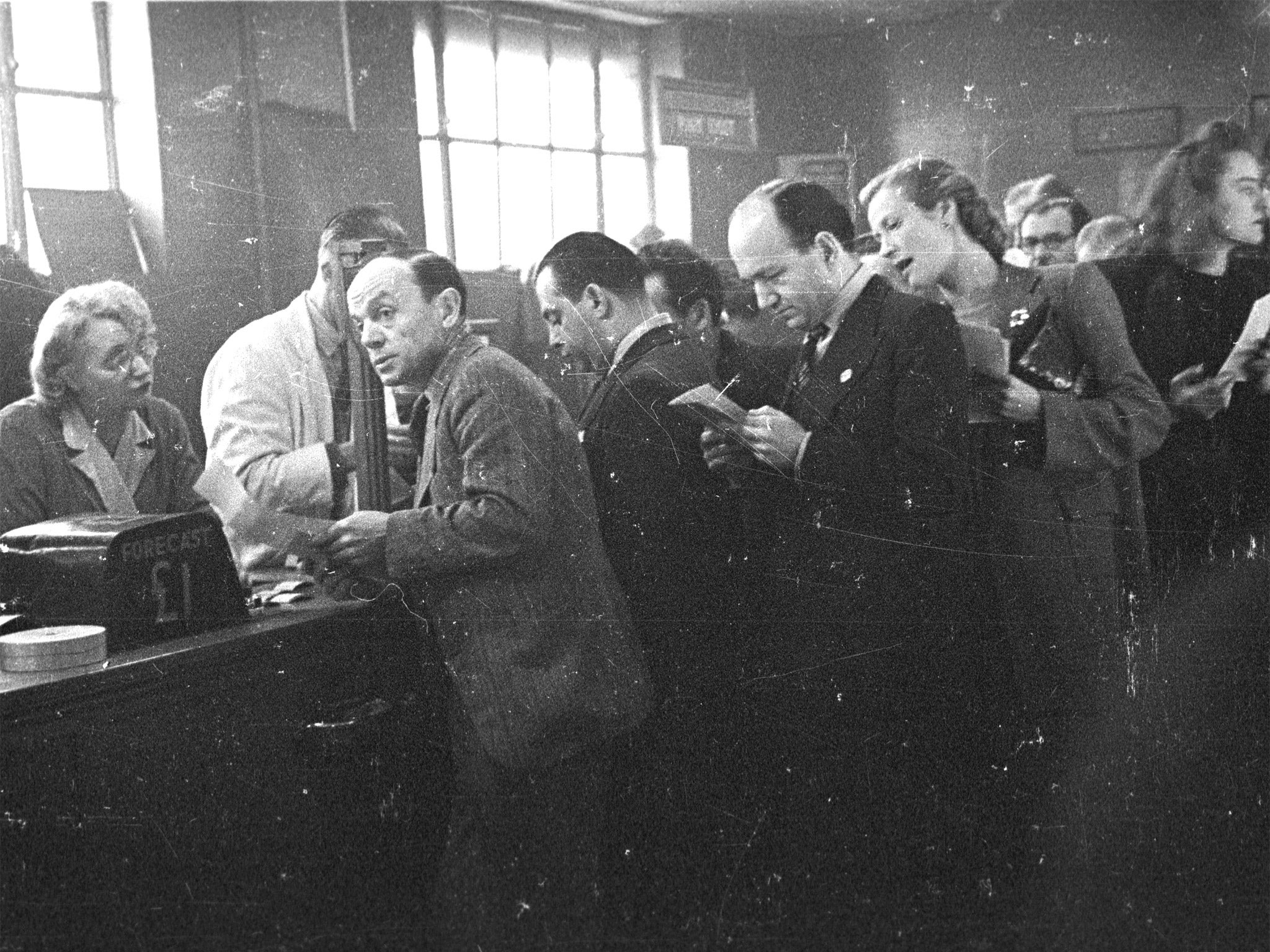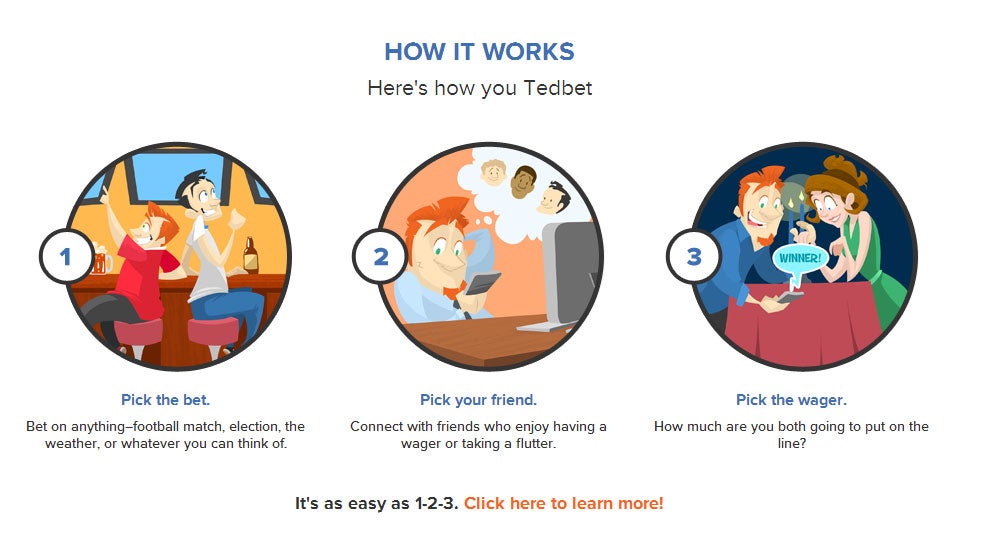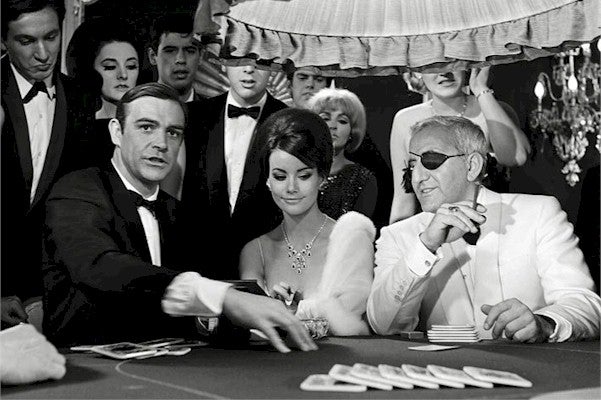'You bet me?' How a new generation of apps are combining social media and gambling
From sporting flutters to bets at the bar, Rhodri Marsden explores how new technology is allowing us to bet on anything at anytime

Your support helps us to tell the story
From reproductive rights to climate change to Big Tech, The Independent is on the ground when the story is developing. Whether it's investigating the financials of Elon Musk's pro-Trump PAC or producing our latest documentary, 'The A Word', which shines a light on the American women fighting for reproductive rights, we know how important it is to parse out the facts from the messaging.
At such a critical moment in US history, we need reporters on the ground. Your donation allows us to keep sending journalists to speak to both sides of the story.
The Independent is trusted by Americans across the entire political spectrum. And unlike many other quality news outlets, we choose not to lock Americans out of our reporting and analysis with paywalls. We believe quality journalism should be available to everyone, paid for by those who can afford it.
Your support makes all the difference.It was the late-1990s when I first walked into a betting shop, nervously clutching a £5 note. The National Lottery may have already gone some way towards destigmatising gambling, but placing bets still felt like a delinquent act undertaken by unhappy men of a certain age who forever clung to the forlorn hope of a big win on the gee-gees.
These days, notwithstanding the controversy surrounding fixed-odds betting terminals and the solitary joylessness of playing them, the gambling industry has done much to try to persuade us that gambling is fun, social and accessible – not just a tax on people who are bad at maths.
With advertising campaigns by the likes of Paddy Power and Sky Bet marketing an image of matey wholesomeness, worldwide revenue from sports betting is now nudging $1 trillion – despite it being illegal in much of the world and, crucially, in most of the United States. But it's online where gambling innovations are really gathering pace, as gaming, gambling and social media are converging under the umbrella term of "social gaming".
It's hard to define the term precisely. It describes apps and Facebook games that have added gambling elements and cash rewards; sites such as BragBet that encourage people to bet as a team; gambling portals with social elements such as Paddy Power's BetDash; the league-format fantasy betting offered at gameofodds.com; and new sites such as Tedbets, which allow two people to bet against each other on the outcome of absolutely anything, from losing weight, to passing your driving test, to correctly predicting the number of times Jeremy Paxman says "Come on!" in a single episode of University Challenge.

Despite the daunting mass of regulations that govern the industry, some companies have succeeded in raising substantial sums in venture capital; it's less than a year since the Czech-based BuddyBet raised $3m (£1.8m) for its peer-to-peer betting exchange, while Betable, which specialises in injecting real money stakes into existing online games, raised $18.5m towards the end of last year. Whoever times it right, either by anticipating regulatory changes or hitting on a winning formula, could see big wins – but the business itself is a gamble, as our motivations for indulging in social gaming are currently far from clear. Is it for fun? Or is it for money?
By persuading us to pay for virtual goods and accessories, online games such as Farmville have already established that we're willing to regularly part with money purely for the pleasure of playing – a "psychological masterstroke" that aligns it with gambling, according to Dr Mark D Griffiths , professor of gambling studies at Nottingham Trent University. "Social gamers know that they're spending money as they play with little or no financial return," he says in a recent article in Gaming Law Review and Economics. "[They] love playing the game itself, and money is simply the price of entry which they are willing to pay."
No wonder that gambling firms are eager to make a connection with these people; they don't even have to pretend that a big win might be just around the corner. They just have to construct a format that hauls them in – one that combines achievement, enjoyment, excitement and sociability.
Scott Burton, founder of TedBets, believes that his model of social wagering between friends ticks those boxes by replicating real-world betting behaviour. "The back-and-forth bets I make with friends are social and enjoyable," he says. "It's about competition, rather than the amount of money we're winning."

While TedBets offers exchange-style betting on various sports in a similar way to Betfair, custom betting on anything you like for real money is unique to the site, the online equivalent of the traditional pub bet, sealed with a handshake and grudgingly settled with beer. "It's been interesting to see what people are using it for," Burton says. "I thought it would be bets on golf games at the weekend, but we're seeing crazy ones where people are combining multiple sports: this weekend Peyton Manning will, say, throw more touchdown passes than points Alexander Ovechkin will score in the hockey game, for example."
The process of constructing a custom TedBet is fairly straightforward. Choose who you're betting with, what you're betting on and how much you're wagering; set a time by which the bet needs to be accepted and the time the bet will be over. Then it's just a question of both parties clicking a button to agree who won the bet; as soon as that's settled, the money automatically transfers across. Its usefulness to someone betting their friend a tenner that they "can't climb that tree" while strolling through the park is doubtful, but you can see how this form of social gambling could happily slip into to the real-time streams of social media.
Youbetme, another custom-bet facilitator based in the US, knows its market; suggested wagers include "who can make out with the hot girl at the bar?" with potential prizes including "10 shots of sambuca".
To sidestep the many regulatory problems, Youbetme doesn't facilitate real-money betting; indeed, valueless virtual currencies are often used in social gaming as a benign alternative to the real thing. But perhaps it's establishing social-gaming behaviours that's the key to future business success; persuade us that something is fun now, prise real money out of us later. This is an understandable concern for those who are worried about the normalisation of gambling behaviour, and particularly among children. A report compiled using data from a 2009 survey of British adolescents found that gambling for virtual currency had a strong correlation with gambling for real money and was also an important predictor of problem gambling.

"We're aware of gambling activities and products taking on new social aspects borrowed from social games and social media," Dirk Hansen, chief executive of the gambling advice charity GamCare, says. "Although these elements are fairly benign in themselves and may add to the overall gambling experience positively, we would caution against any disregard to the risks still associated with gambling. It's important that social aspects of a game do not distract from standard responsible-gaming messages."
Burton points out that TedBets' UK licence was contingent upon there being a system implemented to regulate the velocity of play and that it takes its responsibilities seriously. "The system monitors how fast a player is progressing and limits can be imposed," he says. "There's also an extra layer of regulation that's not present with a traditional bookmaker, in that you're betting against a friend! In other words, anyone betting a large sum would need to find a friend who's also willing to lose that sum."
Britain is known for its relaxed gambling laws, and it will continue to be a testing ground for new gambling services, tempting guinea pigs like us with attractive odds and eye-catching gameplay. It's conceivable that the people behind those services believe that they're performing a social service; as Dr Griffiths wrote recently: "Those in the social-gaming business believe that their games tap into some of the fundamental drivers of human happiness and give people pleasure, friendship and a sense of accomplishment."
But they primarily exist to make money and it's always worth remembering the late British journalist Jeffrey Bernard's sage observation about betting shops: "You'll see three windows marked 'Bet Here', but only one window with the legend 'Pay Out'."
Join our commenting forum
Join thought-provoking conversations, follow other Independent readers and see their replies
Comments